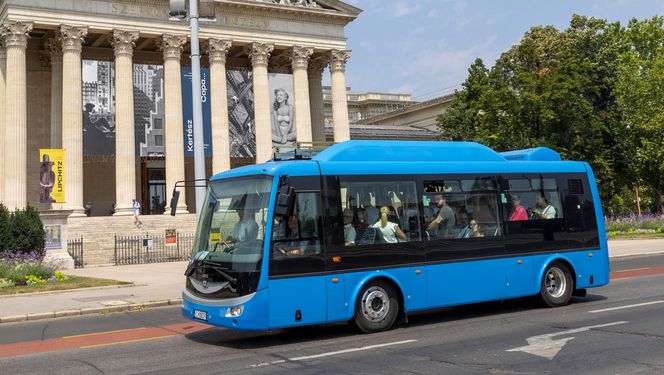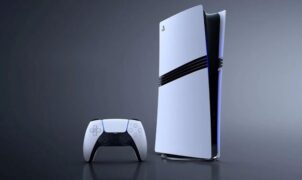TECH NEWS – Ganz, in collaboration with a Czech company, has developed a new electric vehicle. Plans are to produce 50 units of this bus annually. The first rounds of the bus, developed at the Baja factory, took place in City Park, where we had the opportunity to ride in it. The vehicle, presented by GTKB Kft., has one significant drawback: its air conditioning is tragically weak, causing the nearly 35 journalists on board to nearly cook in the almost 40-degree heat.
A new Hungarian vehicle has been born – in Czech co-production. Budapest saw the unveiling of the Ganz-SOR EBN8 electric midibus prototype, developed at the Baja factory, to a broader press audience. The vehicle was developed with the support of the “Encouraging Corporate Research, Development, and Innovation Activities” GINOP Plusz-2.1.1-21 grant. The 8-meter-long, low-floor vehicle can comfortably transport 45 passengers with a range of 300 kilometers. The bus’s “heart,” the drivetrain, and the software were developed by Hungarian experts, while the body was supplied from the Czech Republic. Currently, there is only one unit of the midibus, but after obtaining type approval, 50 vehicles could be produced annually at Ganz-SOR.
A bus built in Baja: Ganz Transelektro Közlekedési Berendezéseket Gyártó Kft. (GTKB), in collaboration with its Czech vehicle manufacturer partner (SOR), has created the brand new Ganz-SOR. The two companies decided to develop a medium-sized midibus because this type of vehicle is in high demand worldwide, especially for urban transportation.
The new bus development took three years, with the body manufactured in the Czech Republic, but the heart of the machine, the drivetrain, was developed in Hungary. The system integration and software development, which represent the highest added value, were also carried out in Hungary.
The Ganz-SOR electric midibus has a low-floor design, making it accessible for people with disabilities thanks to its foldable ramps. It can comfortably accommodate 45 passengers and has 16 seats. Its range is up to 300 kilometers. In addition to the midibus, Ganz also developed charging equipment, including an OpCharge-type pantograph fast charger and a dual-head, cable-connected 120 kW charging unit.
“There are few midibuses on the international market, as the largest manufacturers do not specialize in this size. We see that the demand for medium-sized urban electric vehicles is growing year by year. The coronavirus pandemic has accelerated this process, changing transportation trends, with passenger numbers dropping on many routes. The midibus offers an efficient alternative for passenger transportation,” said Rudolf Pencz, CEO of GTKB Kft.
The bus’s small size is ideal, but the air conditioning is a tragedy
The midibus could be a suitable solution for narrow urban environments, university campuses, tourist attractions, or supporting suburban public transport. One problem arises from the current brutal summer weather and the bus’s very poorly performing (but very noisy) air conditioning system: during the short bus ride, the journalists on board nearly cooked in the nearly 40-degree sultry air, which the air conditioning could not cool even minimally in this small bus. I can’t say whether this was due to a malfunction, a bad setting, or some cost-saving consideration, but if the latter is the case, the vehicle could face serious problems in similar current weather conditions or the increasingly brutal weather fluctuations due to global warming.
The electric bus can also be a vital component of community energy use based on renewable energy. Thanks to its battery pack, it can store or return energy, thus performing energy tasks in addition to passenger transport.
“GTKB was founded in 2007, but the plant has been serving the Hungarian economy for more than 70 years. We have already made our mark in the production of railway vehicle equipment, signaling devices, switch drives, pantographs, and power electronics. With the development and production of the Ganz-SOR midibus, we are entering the e-mobility market,” said the CEO. Rudolf Pencz added that currently, there is one prototype of the Ganz-SOR, but the Baja plant is ready to produce 40-50 vehicles annually.








![[TGA 2025] Star Wars: Galactic Racer Focuses on High-Stakes Podrace Runs [VIDEO]](https://thegeek.games/wp-content/uploads/2025/12/theGeek-Star-Wars-Galactic-Racer-302x180.jpg)







Leave a Reply